Book Reviews: 2025
Aryanity: The Forbidden History of the Aryan Race

Finished: 2025-12-22
Author: Chapman, Arron (aka Orion Starfire)
In just 250 pages, this book consolidates an incredible span of time and a very dense history into quite the digestible format. My feelings about the author aside, I found Aryanity to be an informative introduction to dozens of more niche topics on the subject of the Aryan race, mankind's history, National Socialism, historical curiosities, lost civilizations, and much more.
Are all of the facts 100% accurate to historical events? Probably not. Is some of the content in here akin to schizo-tier esoteric Hitlerisms? Yeah, definitely. Would I read it again? Absolutely!
If you know nothing of "the cause", haven't been in "the movement" long, or are just starting down the path of racial enlightenment, then this book is probably not for you. It makes a lot of wild claims and I get the feeling that the reader should not open this book empty-handed as it were. I was somewhat familiar with almost all of the topics discussed in the book before I read it, so when the author mentioned White indians on a Spanish island chain, Nordic alien UFOs, and a particular Austrian politician being the godlike man-of-all-men, I didn't bat an eye. I look forward to his other two books and while I'm not sure if there is a hidden race of supermen guarding the secret entrance to Agartha in Antarctica, I would very much like to believe so.
The White Indians of Nivaria

Finished: 2025-12-10
Author: Kennedy, Gordon
This short book reminds us that there were White, stone-age, "indians" still living in their traditional ways on a chain of islands only a few hundred years ago and that they were fought / bred out of existence by the invading Spaniards in the 15th century (or thereabouts). I found it quite interesting to read and I think I'll recommend it to those interested in the complete history of White culture and society. It doesn't seem that the indians described in the book were particularly remarkable or different from their ancient kinsmen, but they were a look into that distant past that we all share. Luckily, some scholars and explorers took notes of their civilization before it was erased.
This is now the 2nd or 3rd book that I've come across that makes the explicit link between some form of advanced, ancient culture and the supposed "myth" of that group transporting the seeds of their civilization to different communities all over the world. Graham Hancock wrote about it in Fingerprints of the Gods and Magicians of the Gods, so did "Orion Starfire" in Aryanity: The Forbidden History of the Aryan Race. I tend to believe this notion as it helps account for the many similarities between separate cultures; most notably their myths, customs, and structures. A lot of these groups seemed to be stagnant or uncivilized (however one perceives such a word) before these mythical pale men with beards sailed over the horizon and brought light into their dark worlds. Don't get me wrong, I disagree with colonialism; I believe it is not in the best interest of any culture to spread their customs and accomplishments to other groups. It is better to spread the group as it were, but even though their gifts were shared with other people, we can now see in retrospect that those efforts were essentially wasted.
There is No Antimemetics Division
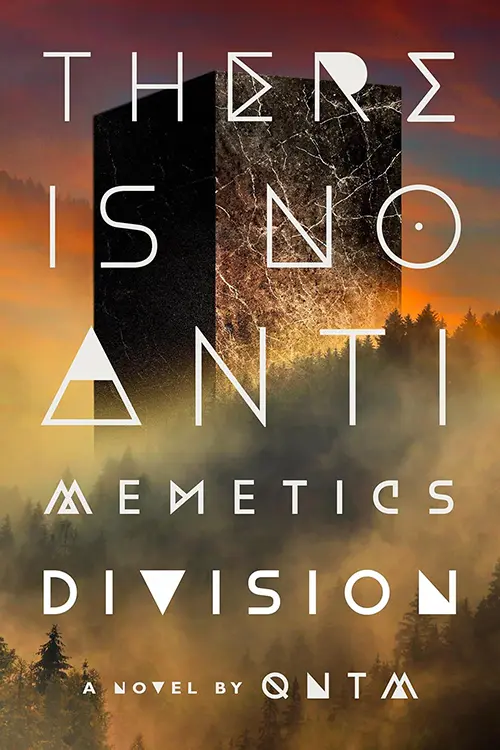
Finished: 2025-12-01
Author: Hughes, Sam (qntm)
I'm not usually one for fiction books in general (or sci-fi books in particular), but this exception became known to me via a coworker's suggestion. He, myself, and a 3rd coworker decided to read this in throughout November as a sort of book-club for us in the office.
I didn't know much going in, but I did know that the book was originally serialized online over the last decade or so and that the published version had just been released. The version I started reading was the 2021 self-published edition and while many of the story elements and characters were the same, I came to learn that a lot had been changed and added to the story.
For the most part, it was a fine read; there were some interesting characters, nifty plot devices, a reasonable "full-circle" moment at the end, and a somewhat tidy conclusion. I wouldn't really go so far as to recommend it however and I don't believe that I will bother reading it again. There are some moments where it seems the author is phoning it in, not really doing the setting justice, and recapping some old Vsauce videos to pad out his story that really could have been half as long.
Furthermore, it seems the British author threw in a "muh Nazis bad" line in there purely to virtue signal. It just came off as lazy writing.
All in all, not good, not terrible. I prefer my sci-fi a little more mid-20th century it seems like Out of the Silent Planet / Perelandra or maybe something like Ship Breaker.
Against Intellectual Property

Finished: 2025-10-27
Author: Kinsella, N. Stephan
This short book—which I happened to get for free, fittingly enough—is one I'd recommend to anyone with Libertarian leanings (as I have). Kinsella argues that intellectual property (IP) laws restrict the free use of one's property and stifle innovation. I find his reasoning persuasive, and I tend to believe that a genuinely free market could address most of the issues that would arise from abolishing IP altogether.
Key points I took from the book:
- Patents are often arbitrary and sometimes granted for absurd ideas.
- Ideas and thoughts are not tangible or scarce, and therefore cannot truly be considered property.
- A book is a physical object containing ideas—the pages are property, but the words themselves are not.
My understanding of property—whether physical, digital, or conceptual—is still evolving, and I expect my views will continue to develop over time.
Sebastian Wang put it well in his review here, a paragraph from which is reproduced below:
The book's main argument is simple but powerful: property rights exist to deal with scarcity. Land, food, and cars are scarce—if one person takes them, someone else goes without. But ideas? Ideas aren't scarce at all. If I copy your invention or your book, I haven't taken anything from you—you still have it.
If you'd like to read this book. It is freely available here: StephanKinsella.com
Nature's Eternal Religion
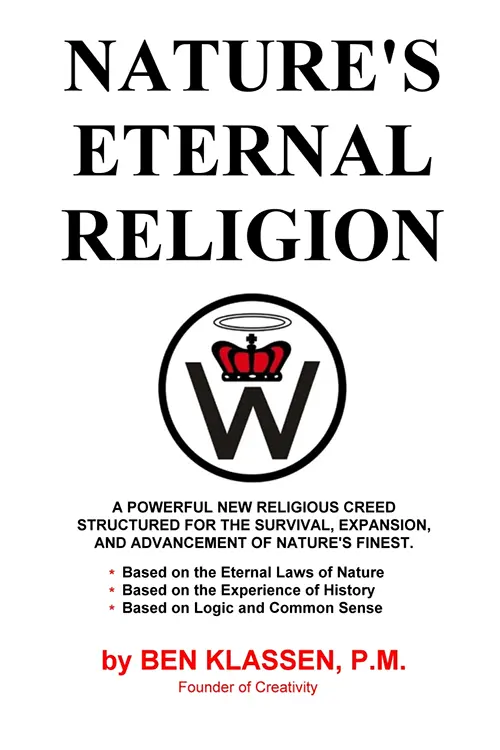
Finished: 2025-09-30
Author: Klassen, Ben
I had a pretty good grasp on what Ben Klassen's book was about before reading it as I have been reading books from "the movement" for a few years now, I've talked to people who knew him personally, and I've even been to his Necropolis—tombstone—in North Carolina.
Klassen lays out a solid and well researched platform for bolstering the strength of all White people by rejecting Jewish influence, religion, and control; improving your financial standing by breaking away from corporate work and becoming self-employed; and teaching us about the past, making us aware of the present, and preparing us for the future.
The 648 pages are well spent critiquing Christianity, Judaism, and Islam by breaking down the fundamentals of these (((Abrahamic))) religions and showing how they are a means of control and enslavement of all races in general and the White race in particular. He speaks on biology and evolution and how these systems can break down if nature's laws are ignored and transgressed against. He also makes a thousand good points about how the Jew is a crafty, sinister, and malicious one and their many books and rituals reflect this nature.
I agree with Klassen on the vast majority of his opinions as expressed in NER, however his understanding of biology and evolution definitely has some 1970's-era issues. All in all, great book and I look forward to reading more of his work.
If you'd like to read this book. It is freely available here: CreativityAlliance.com
Hutterite Life

Finished: 2025-09-29
Author: Hostetler, John A.
This seems to be a shortened version of Hostetler's much longer work entitled Hutterite Society—which I have a copy of and plan to read—but what it lacks in length, it definitely made up for in content. This booklet gave me a decent understanding of the fundamentals of Hutterite life, their struggles in previous centuries, and their differences from other "plain people" like the Amish.
Totaling no more than four dozen pages and two dozen pictures, this work is but a glimpse into the hidden life of these plain people. I appreciate their resourcefulness and willingness to adapt to technological change while maintaining their staunch beliefs (even if they are Christians). Perhaps there will soon be similar communities of non-Christian White folks living in a similar manner.
Economic Facts and Fallacies
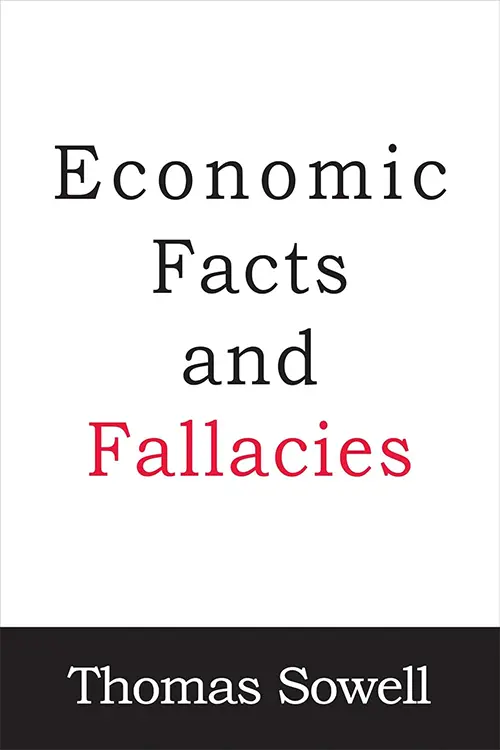
Finished: 2025-09-11
Author: Sowell, Thomas
I've probably read a dozen of Sowell's books at this point and while they do feel a little samey at times, they really do a good job of hammering home important topics relating to society in general and the economy in particular. My favorite books of his are Black Rednecks and White Liberals and Basic Economics, while I haven't read the former in a number of years, I've read BE once all the way through (It's very long) and some chapters of it here and there.
Economic Facts and Fallacies focuses on a few different fallacies that are often held by those who study or speak about economics and their real-world effects when put into practice. It's too much to get into here—and I don't remember most of the finer details—but the book is engaging and I enjoyed it quite a bit, as I do with most of Sowell's writings.
Concrete Island

Finished: 2025-09-11
Author: Ballard, J. G.
This was the first of Ballard's books that I've come across and I enjoyed the leading half of it much more than the trailing half. It's a not-so-long story about a rich man who gets stranded on a forgotten concrete structure in the middle of a busy city in just the wrong way, making him invisible to the other civilians. The initial struggle of the main character was interesting and felt realistic, but his behavior at the end seemed like it was chaotic and dramatic just for the sake of it.
I also find the trope of the dumb brute paired with the thin, smart character to be a bit overdone. I read Of Mice and Men in school and that kind of character pairing always reminds me of that. I read this book very slowly over the course of 165 days. I will not be reading it again, but I am open to his other works.
On the Jews and Their Lies

Finished: 2025-08-24
Author: Luther, Martin
On the Jews and Their Lies seems to be one of those "required reading" books that is often mentioned in White-forward circles. While it is rather unpopular with modern Lutherans, this book clearly shows how disdain for Jews has only ebbed 'n flowed throughout time and how most of the modern talking points against them are centuries old (yet we seem to have cyclical amnesia about them). A lot of the sentiments expressed by Luther sound like they could come right out of the 20th century—even though they are from the 14th!.
I listened to this book as read by the late, great Alex Linder via the Learning College. While the book was very strange in verbiage and nature as well as leaning pretty heavily into "true" Christianity, I think it was dead-on for a lot of the criticisms of Jewry that are still very serious issues in the modern world. It's not a good primer, but it makes a good reinforcement to existing beliefs.
Peaceful Parenting
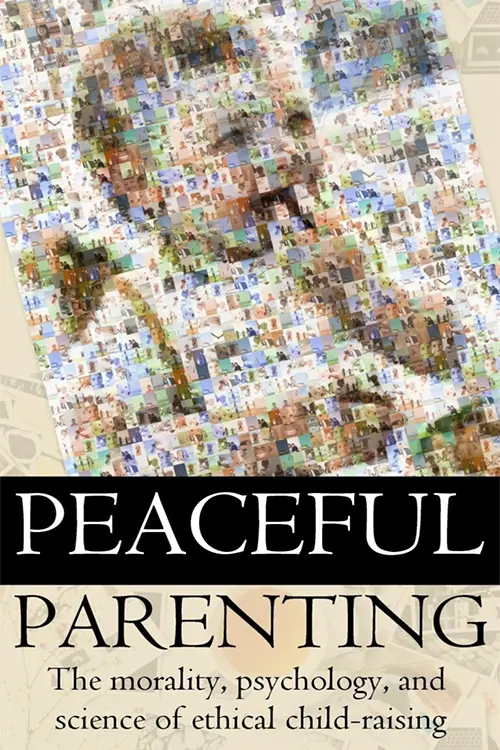
Finished: 2025-04-24
Author: Molyneux, Stefan
Stefan Molyneux is a wonderful writer and the patron saint of 21st century philosophy. He leans rather libertarian—as do I—and has written a number of free books about different philosophical topics; ranging from general anti-government sentimentality to familial relationships, and most recently, parenting.
Molyneux breaks down the facade of modern parenting being the "correct" way to bring up children in the 21st century and instead proposes that reasoning, patience, and treating your children as fellow humans is the best way to develop and secure a strong, lifelong relationship with them.
As someone who didn't have very emotionally supportive parents, I resonated with his message in this book as well as the other half-dozen or so books of his that I have read. I plan to have children of my own soon and I want them to be strong, healthy, and mentally sound adults someday. I deeply, truly hope that you will read this book.
Sex without Shame
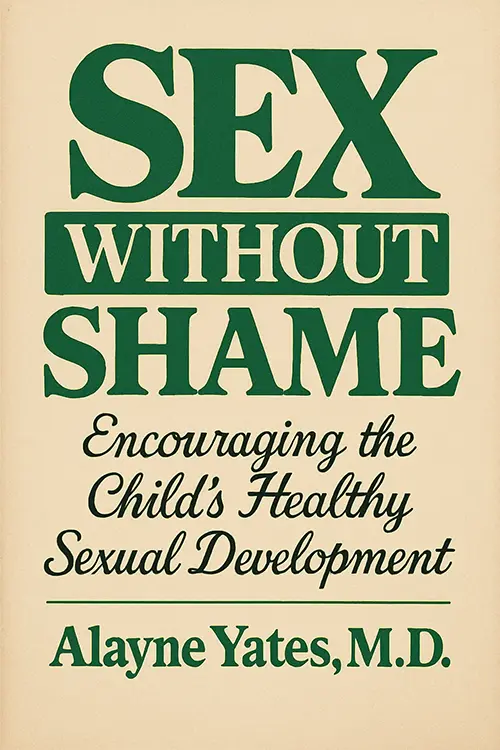
Finished: 2025-02-17
Author: Yates, Alayne
While I don't remember most of the finer details of Dr. Yates' book—as I'm writing this review many months after reading it—I do recall that the approach to topics around sexual development and the nature of reproduction are forthright and practical. The author doesn't approve of the disguise-and-disregard "method" that many parents seem to employ with their children; often refusing to answer questions about these most important topics and berating / belittling their children when they attempt to make sense of it all.those who need it most
SwS was written in the 1970s and certainly suffers from age in some obvious ways, but I wouldn't reject it outright just for that. I think it's a good start to thinking about how sex is an important topic and one that should be approached dutifully and respectfully.
